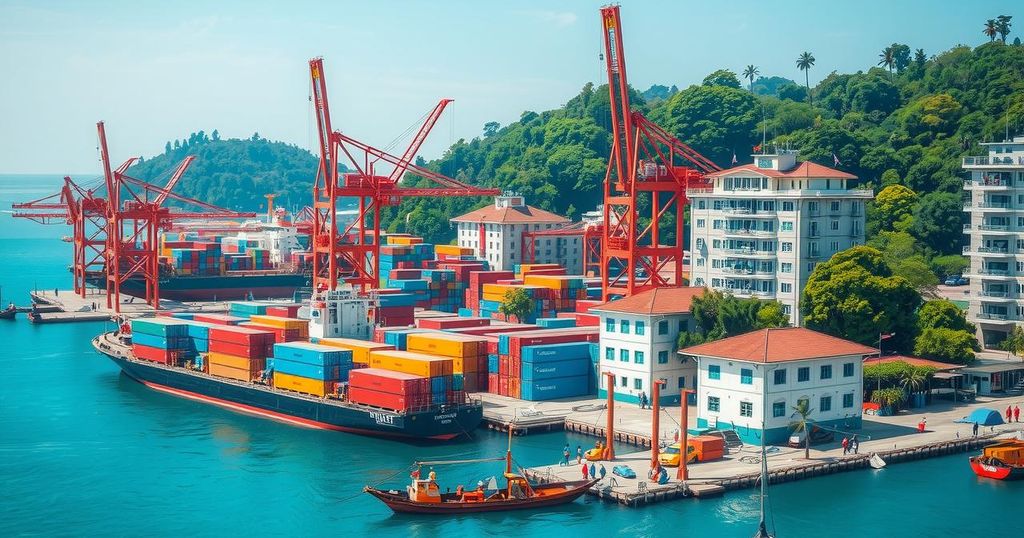Bangladesh Seeks Support from China Amidst Regional Tensions with India
Muhammad Yunus, an adviser to Bangladesh’s interim government, made comments during his visit to China that implied a threat to India’s northeastern states, urging China for an “extension”. He emphasized Bangladesh’s geographical importance, claiming it can facilitate access to international markets for these states. Additionally, agreements were signed between Bangladesh and China for port expansion and river management, signifying deepening relations.
Bangladesh’s interim government adviser, Muhammad Yunus, has made comments perceived as a veiled threat to India’s northeastern states while appealing to China during his recent visit to Beijing. Yunus urged for an “extension” in the region, indicating that the northeastern states, known as the “seven sister states,” are landlocked by Bangladesh to the west. His remarks have ignited discussions among defense analysts, who view his comments as distasteful.
In a video, Yunus pointed out that the seven northeastern states are entirely landlocked and lack access to the ocean. He claimed that Bangladesh serves as the “guardian of the ocean” for these states, suggesting that this geographical positioning could create opportunities for China, allowing for economic development and export possibilities through Bangladesh.
Sanjeev Sanyal, a member of Prime Minister Modi’s economic advisory council, criticized Yunus’ statements on social media. He questioned the significance behind Yunus’s mention of the landlocked status of India’s northeastern states, while still inviting China to invest in Bangladesh. He emphasized the need for clarity regarding the implications of Yunus’s appeal to China.
During his visit, Yunus also discussed maritime cooperation with Chinese President Xi Jinping. An agreement was signed for Chinese companies to assist in the modernization and expansion of Bangladesh’s Mongla Port, with China agreeing to invest approximately $400 million. Additionally, China committed $350 million for the development of the Chinese Economic and Industrial Zone and $150 million for technical assistance.
Furthermore, Yunus requested China’s help in managing Bangladesh’s river systems, particularly the Teesta River, which Bangladesh shares with India. He acknowledged China’s expertise in water management and emphasized the need for comprehensive assistance rather than focusing solely on one river. The conversation resulted in agreements regarding the exchange of hydrological information for the Yarlung Zangbo-Jamuna River, highlighting the deepening ties between Bangladesh and China.
Overall, Yunus’s statements reflect a strategic interest in enhancing Bangladesh’s ties with China, amid regional geopolitical dynamics involving India and potential economic benefits for his nation.
In summary, Muhammad Yunus’s recent comments during his visit to China highlight Bangladesh’s strategic appeal for enhanced cooperation with China, particularly in light of India’s northeastern states being landlocked. The signed agreements for port expansion and river management illustrate the strengthening ties between China and Bangladesh, alongside Yunus’s implicit challenge to India’s regional influence. This development may have significant implications for the geopolitical landscape of South Asia, particularly concerning Bangladesh’s relations with India.
Original Source: www.ndtv.com








Post Comment